The following is a list of episodes of Richard the Lionheart , a family television show based loosely on the life of Richard I which aired between 1962 and 1963.
The following is a list of episodes of Richard the Lionheart , a family television show based loosely on the life of Richard I which aired between 1962 and 1963.
| No. overall | No. in season | Title | Directed by | Written by | Original air date | U.K. viewers (millions) | |
|---|---|---|---|---|---|---|---|
| 1 | 1 | "Long Live The King" | Ernest Morris | Mark Grantham | June 4, 1962 | N/A | |
| Sir Philip de Brause brings Richard a message from the King - he is to proceed to Vendome to make a peace treaty with Catherine. But it is a trick and Richard is ambushed on the way. | |||||||
| 2 | 2 | "The Lion and The Eagle" | Ernest Morris | Paul Tabori and Stanley Miller | June 11, 1962 | N/A | |
| Richard returns to London to prepare for his coronation only to find that his brother John has kidnapped the Queen Mother. | |||||||
| 3 | 3 | "The Robbers of Ashdown Forest" | Ernest Morris | Paul Tabori and Stanley Miller | June 18, 1962 | N/A | |
| King Richard hears news that Prince John has inspired another rebellion in the North. Impulsively, he journeys to meet the threat without waiting for his army to gather. | |||||||
| 4 | 4 | "The Wolf of Banbury" | Ernest Morris | Paul Tabori and Stanley Miller | June 25, 1962 | N/A | |
| Richard learns that Lord Giles of Banbury has been giving protection to fugitives from the law - and that he has captured for ransom the beautiful Lady Rosalie, betrothed to Sir Geoffrey. | |||||||
| 5 | 5 | "School For A King" | Ernest Morris | Paul Tabori and Stanley Miller | July 2, 1962 | N/A | |
| Thinking hard on his late father's advice to be virtuous and honourable, Richard determines to learn more about his realms - setting out with his companions to roam the countryside in disguise. | |||||||
| 6 | 6 | "Crown In Danger" | Ernest Morris | Paul Tabori and Stanley Miller | July 9, 1962 | N/A | |
| Three of Richard's prisoners escape and take Sir Gilbert with them as hostage. Richard and Blondel, with the aid of Tom the Tracker, set off in pursuit. | |||||||
| 7 | 7 | "The Pirate King" | Ernest Morris | Paul Tabori and Stanley Miller | July 16, 1962 | N/A | |
| Richard's skill at chess and duelling is put to the test when he is challenged by notorious English pirate Forked Beard, self-styled King of the Northern seas. | |||||||
| 8 | 8 | "The Alchemist of Rouen" | Ernest Morris | Paul Tabori and Stanley Miller | July 23, 1962 | N/A | |
| Lady Rosalie tells Richard that her fiance, Sir Geoffrey, is bewitched. Investigating, Richard and Blondel find Geoffrey in a trance-like state and follow him to an alchemist's house. | |||||||
| 9 | 9 | "The King's Champion" | Ernest Morris | Paul Tabori and Stanley Miller | July 30, 1962 | N/A | |
| Sir Gilbert brings news that the Scots are about to invade, allied with Henry, Richard's elder brother. But Richard buried his brother several years previously and believes this "Henry" is a fraudulent pretender - part of a plan to usurp his kingdom. | |||||||
| 10 | 10 | "King Arthur's Sword" | Ernest Morris | Paul Tabori and Stanley Miller | August 6, 1962 | N/A | |
| Richard refuses to believe that King Arthur's sword, Excalibur, has been stolen from its place at Glastonbury Abbey. Accompanied by Sir Gilbert and Sir Geoffrey he visits the tomb, where he finds a mysterious knight awaiting him with a message. | |||||||
| 11 | 11 | "The Challenge" | Ernest Morris | Paul Tabori and Stanley Miller | August 13, 1962 | N/A | |
| Richard's knights are challenged by Zara, Princess of Granada, into a joust with her brother, Ubaldo - with her as the prize. | |||||||
| 12 | 12 | "The Bride" | Ernest Morris | Paul Tabori and Stanley Miller | August 20, 1962 | N/A | |
| Pressed by counsellors to marry, Richard reluctantly agrees to take a cautious look at Princess Alice. Disguised as a troubadour, Richard rides to her home at Blanch-Garde castle - where his plans are disrupted. | |||||||
| 13 | 13 | "The Strange Monks of Latroun" | Ernest Morris | Stanley Miller | August 27, 1962 | N/A | |
| Richard finds a boy murdered and a pilgrim robbed - both by the so-called "monks" of Latroun monastery. Masquerading as a known felon he rides to the monastery in an attempt to uncover the truth. | |||||||
| 14 | 14 | "The Great Enterprise" | Ernest Morris | David Nicholl | September 3, 1962 | N/A | |
| Richard returns from his honeymoon to find the Saracens blockading Marseille. Then a letter from Saladin is found in Queen Berengaria's room, making it seem that she is a traitor. | |||||||
| 15 | 15 | "The Norman King" | Ernest Morris | David Nicholl | September 10, 1962 | N/A | |
| New Year's Eve, 1191 - Richard and Berengaria are Tancred, King of Sicily's, guests of honour at a masqued ball. But court intrigue runs high and Tancred plots with Philip of France to have Richard killed. | |||||||
| 16 | 16 | "When Champions Meet" | Ernest Morris | David Nicholl | September 21, 1962 | N/A | |
| Acre, Palestine. Prince John makes Philip of France an offer he can't refuse: he will gain all of Richard's French provinces if Richard himself dies in the Holy Land. | |||||||
| 17 | 17 | "The Warrior From Scotland" | Ernest Morris | Stanley Miller | September 28, 1962 | N/A | |
| Kenneth Stewart, a young warrior, arrives at the Crusaders' camp determined to serve King Richard. Though his first duty seems easy it leads him to very grave trouble. | |||||||
| 18 | 18 | "The Conjurer" | Ernest Morris | Mark Grantham | October 5, 1962 | N/A | |
| Ali, a Saracen youth with a flair for conjuring tricks but a fear of killing, is forced by his commanding officer to try to worm his way into Richard's confidence - and then assassinate him. | |||||||
| 19 | 19 | "The Lord of Kerak" | Ernest Morris | David Nicholl | October 12, 1962 | N/A | |
| Richard and Sir Gilbert go to Kerak Castle to query the absence of Lord Arnold from the battle of Acre. Arnold, however, has conspired with Conrad of Montferrat to dispose of his unwelcome visitors. | |||||||
| 20 | 20 | "The Saracen Physician" | Ernest Morris | Stanley Miller | October 19, 1962 | N/A | |
| Feverish and unwell, Richard lies ill and delirious in camp, attended by his doctor, Brother Simeon. But Simeon is one of Conrad of Montferrat's men, and Sir Kenneth is wary of his motives. | |||||||
| 21 | 21 | "A Marriage of Convenience" | Ernest Morris | Stanley Miller | October 26, 1962 | N/A | |
| Richard pretends to oppose Lady Edith's marriage to Sir Kenneth and sends a proposal to Saladin that the Muslim ruler should be Edith's husband, consolidating peace between their armies. | |||||||
| 22 | 22 | "Queen in Danger" | Ernest Morris | David Nicholl | November 2, 1962 | N/A | |
| During a truce in the hostilities, Queen Berengaria sets off on pilgrimage to pray for Richard's safety. But Conrad finds out and plots with a hostile Bedouin leader to kidnap her. | |||||||
| 23 | 23 | "Prince Otto" | Ernest Morris | Stanley Miller | March 15, 1963 | N/A | |
| Prince Otto's castle bars the Crusaders' path and he demands ransom money to let them pass. Angry, and under pressure to capture Jerusalem, Richard plans to capture the castle. | |||||||
| 24 | 24 | "The Vision Fades" | Ernest Morris | Stanley Miller | March 29, 1963 | N/A | |
| For long, weary months the Crusaders have striven to reach the Holy City - and now it lies at their feet. One last effort is needed, but there is jealousy and discord among the leaders of Christendom. | |||||||
| 25 | 25 | "The Fugitive" | Ernest Morris | Stanley Miller | April 12, 1963 | N/A | |
| Duke Leopold of Austria sends the devious Count Rolf to murder Richard, who has been shipwrecked on his return from the Holy Land. | |||||||
| 26 | 26 | "Knight Errant At Large" | Ernest Morris | David Nicholl | April 26, 1963 | N/A | |
| Richard is recognised while fleeing through Austria in disguise. Word is sent to local baron Lord Rudolf, who - along with his beautiful daughter - plans to capture Richard. | |||||||
| 27 | 27 | "Guardian of the Temple" | Ernest Morris | David Nicholl | May 10, 1963 | N/A | |
| Richard, Hugo and Marta stop at a market town to buy horses - but Richard comes into conflict with the Knights Templar. | |||||||
| 28 | 28 | "Capture" | Ernest Morris | David Nicholl | May 24, 1963 | N/A | |
| At the border of Duke Leopold's domain, and in sight of freedom, Richard is captured. To avoid war, Leopold must have him executed secretly - and at once! | |||||||
| 29 | 29 | "A King's Ransom" | Ernest Morris | David Nicholl | June 7, 1963 | N/A | |
| Duke Leopold sets his ransom so high that Richard's subjects can scarcely raise it. But Prince John is determined to collect the quota - though not necessarily for Richard's benefit. | |||||||
| 30 | 30 | "The Devil is Unloosed" | Ernest Morris | David Nicholl | June 21, 1963 | N/A | |
| Prince John is told by a gypsy fortune-teller that Richard is dead. He hurries back to England to proclaim himself king. | |||||||
| 31 | 31 | "The Little People of Lyntor" | Ernest Morris | Mark Grantham | July 5, 1963 | N/A | |
| Richard is angered to discover falsified tax demands made in his name. Disguised as a tax-collector he sets a trap for Prince John to protect the Cornish folk from his rapacity. | |||||||
| 32 | 32 | "The Raiders" | Ernest Morris | Mark Grantham | July 19, 1963 | N/A | |
| Richard and Sir Gilbert discover a dead body while out hunting - one of a group of gold robbers that have plagued the district for months. They learn of a local monastery that cares for destitute rough types and investigate in disguise. | |||||||
| 33 | 33 | "An Eye for An Eye" | Ernest Morris | Mark Grantham | August 2, 1963 | N/A | |
| On a journey through England with his two companion knights, Richard is wounded and kidnapped by an old man with a grievance against the monarchy. | |||||||
| 34 | 34 | "The Caveman" | Ernest Morris | Mark Grantham | August 16, 1963 | N/A | |
| All the wells within the domain of Richard's friend, Baron Brentlock, dry up - caused by a hermit's miraculous powers. He will reverse this drought at a price - the hand of Brentlock's daughter in marriage. | |||||||
| 35 | 35 | "A Year and A Day" | Ernest Morris | David Nicholl | August 30, 1963 | N/A | |
| Years earlier, the son of Baron Fitzgeorge made a peasant take his place on Crusade. But when the young warrior returns home in glory, his survival risks revealing the plot. | |||||||
| 36 | 36 | "The Crown Jewels" | Ernest Morris | Mark Grantham | September 13, 1963 | N/A | |
| The Queen's young cousin, who has come to England to learn his knightly duties, falls in with evil companions and is persuaded to take part in an audacious plot. | |||||||
| 37 | 37 | "The Man Who Sold Pardons" | Ernest Morris | David Nicholl | November 29, 1963 | N/A | |
| Richard and Sir Gilbert are on the trail of Brother Nicholas, a professional pardoner whose sinister activities are being carried out in Richard's name under forged papers. | |||||||
| 38 | 38 | "The Heir of England" | Ernest Morris | David Nicholl | December 6, 1963 | N/A | |
| Sir Gilbert, sent to Brittany to bring back Prince Arthur, England's young heir-apparent, is attacked and his place taken by a kidnapper. | |||||||
| 39 | 39 | "The People's King" | Ernest Morris | David Nicholl | December 13, 1963 | N/A | |
| Preparations for Richard's second coronation are proceeding apace, but disgruntled factions who would have benefited from John's accession to the throne are busy plotting his regicide. | |||||||

Richard Milhous Nixon was the 37th president of the United States, serving from 1969 to 1974. A lawyer and member of the Republican Party, he previously served as a representative and senator from California and was the 36th vice president from 1953 to 1961 under President Dwight D. Eisenhower. His five years in the White House saw reduction of U.S. involvement in the Vietnam War, détente with the Soviet Union and China, the Apollo 11 Moon landing, and the establishment of the Environmental Protection Agency and Occupational Safety and Health Administration. Nixon's second term ended early when he became the only U.S. president to resign from office, as a result of the Watergate scandal.
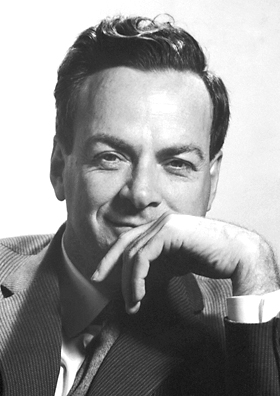
Richard Phillips Feynman was an American theoretical physicist, known for his work in the path integral formulation of quantum mechanics, the theory of quantum electrodynamics, the physics of the superfluidity of supercooled liquid helium, as well as his work in particle physics for which he proposed the parton model. For his contributions to the development of quantum electrodynamics, Feynman received the Nobel Prize in Physics in 1965 jointly with Julian Schwinger and Shin'ichirō Tomonaga.

Richard Dawkins is a British evolutionary biologist and author. He is an emeritus fellow of New College, Oxford, and was Professor for Public Understanding of Science in the University of Oxford from 1995 to 2008. His 1976 book The Selfish Gene popularised the gene-centred view of evolution, as well as coining the term meme. Dawkins has won several academic and writing awards.

Richard III was King of England from 26 June 1483 until his death in 1485. He was the last king of the Plantagenet dynasty and its cadet branch the House of York. His defeat and death at the Battle of Bosworth Field, the last decisive battle of the Wars of the Roses, marked the end of the Middle Ages in England.

Richard I was King of England from 1189 until his death in 1199. He also ruled as Duke of Normandy, Aquitaine and Gascony; Lord of Cyprus; Count of Poitiers, Anjou, Maine, and Nantes; and was overlord of Brittany at various times during the same period. He was the third of five sons of Henry II of England and Eleanor of Aquitaine and seemed unlikely to become king, but his two elder brothers predeceased their father. Richard is known as Richard Cœur de Lion or Richard the Lionheart because of his reputation as a great military leader and warrior. The troubadour Bertran de Born also called him Richard Oc-e-Non, possibly from a reputation for terseness.
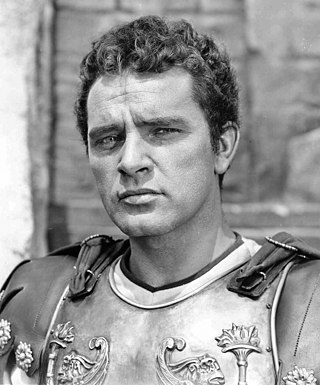
Richard Burton was a Welsh actor. Noted for his mellifluous baritone voice, Burton established himself as a formidable Shakespearean actor in the 1950s, and gave a memorable performance as Hamlet in 1964. He was called "the natural successor to Olivier" by critic Kenneth Tynan. Burton's perceived failure to live up to those expectations disappointed some critics and colleagues; his heavy drinking added to his image as a great performer who had wasted his talent. Nevertheless, he is widely regarded as one of the finest actors of his generation.
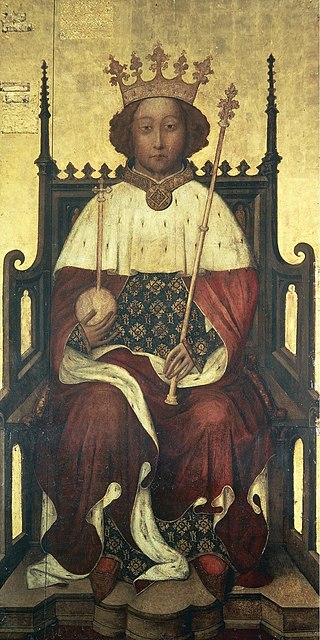
Richard II, also known as Richard of Bordeaux, was King of England from 1377 until he was deposed in 1399. He was the son of Edward, Prince of Wales, and Joan, Countess of Kent. Richard's father died in 1376, leaving Richard as heir apparent to his grandfather, King Edward III; upon the latter's death, the 10-year-old Richard succeeded to the throne.

Henry VI was King of England from 1422 to 1461 and again from 1470 to 1471, and disputed King of France from 1422 to 1453. The only child of Henry V, he succeeded to the English throne at the age of nine months upon his father's death, and succeeded to the French throne on the death of his maternal grandfather, Charles VI, shortly afterwards.

Henry IV, also known as Henry Bolingbroke, was King of England from 1399 to 1413. Henry’s grandfather Edward III had begun the Hundred Years War by claiming the French throne in opposition to the House of Valois, a claim that Henry would continue during his reign. However, unlike his forebears, Henry was the first English ruler since the Norman Conquest, over three hundred years prior, whose mother tongue was English rather than French.

Sir Cliff Richard is an Indian-born British singer and actor who holds both British and Barbadian citizenship. He has total sales of over 21.5 million singles in the United Kingdom and is the third-top-selling artist in UK Singles Chart history, behind the Beatles and Elvis Presley.

Sir Richard Charles Nicholas Branson is a British business magnate and commercial astronaut. In the 1970s he founded the Virgin Group, which today controls more than 400 companies in various fields.
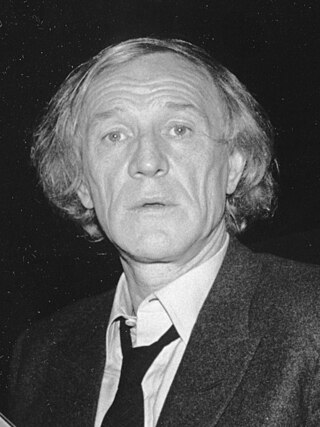
Richard St John Francis Harris was an Irish actor and singer. Having studied at the London Academy of Music and Dramatic Art, he rose to prominence as an icon of the British New Wave. He received numerous accolades including the Cannes Film Festival Award for Best Actor, and a Grammy Award. In 2020, he was listed at number 3 on The Irish Times's list of Ireland's greatest film actors.

Richard Wayne Penniman, known professionally as Little Richard, was an American singer, pianist, and songwriter. He was an influential figure in popular music and culture for seven decades. Described as the "Architect of Rock and Roll", Richard's most celebrated work dates from the mid-1950s, when his charismatic showmanship and dynamic music, characterized by frenetic piano playing, pounding back beat and powerful raspy vocals, laid the foundation for rock and roll. Richard's innovative emotive vocalizations and uptempo rhythmic music played a key role in the formation of other popular music genres, including soul and funk. He influenced singers and musicians across musical genres from rock to hip hop; his music helped shape rhythm and blues for generations.

Richard Tiffany Gere is an American actor. He began in films in the 1970s, playing a supporting role in Looking for Mr. Goodbar (1977) and a starring role in Days of Heaven (1978). He came to prominence with his role in the film American Gigolo (1980), which established him as a leading man and a sex symbol. His other films include An Officer and a Gentleman (1982), The Cotton Club (1984), Pretty Woman (1990), Sommersby (1993), Primal Fear (1996), Runaway Bride (1999), I'm Not There (2007), Arbitrage (2012) and Norman (2016). For portraying Billy Flynn in the musical Chicago (2002), he won a Golden Globe Award and a Screen Actors Guild Award as part of the cast.
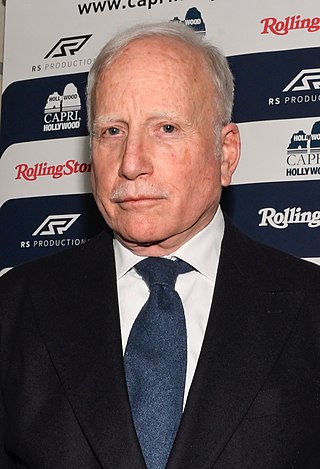
Richard Stephen Dreyfuss is an American actor. He is known for starring in popular films during the 1970s, 1980s, and 1990s, including American Graffiti (1973), Jaws (1975), Close Encounters of the Third Kind (1977), The Goodbye Girl (1977), The Competition (1980), Stand by Me (1986), Down and Out in Beverly Hills (1986), Stakeout (1987), Nuts (1987), Always (1989), What About Bob? (1991), and Mr. Holland's Opus (1995).

Richard III is a play by William Shakespeare. It was probably written c. 1592–1594. It is labelled a history in the First Folio, and is usually considered one, but it is sometimes called a tragedy, as in the quarto edition. Richard III concludes Shakespeare's first tetralogy and depicts the Machiavellian rise to power and subsequent short reign of King Richard III of England.
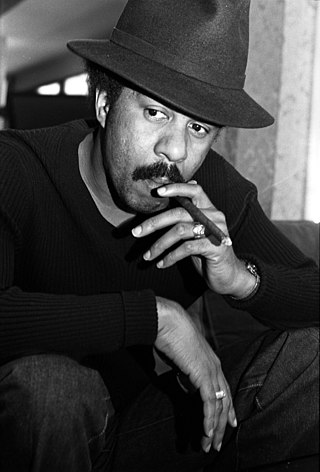
Richard Franklin Lennox Thomas Pryor Sr. was an American stand-up comedian and actor. He reached a broad audience with his trenchant observations and storytelling style, and is widely regarded as one of the greatest and most important stand-up comedians of all time. Pryor won a Primetime Emmy Award and five Grammy Awards. He received the first Kennedy Center Mark Twain Prize for American Humor in 1998. He won the Writers Guild of America Award in 1974. He was listed at number one on Comedy Central's list of all-time greatest stand-up comedians. In 2017, Rolling Stone ranked him first on its list of the 50 best stand-up comics of all time.

Richard III is a 1955 British Technicolor film adaptation of William Shakespeare's historical play of the same name, also incorporating elements from his Henry VI, Part 3. It was directed and produced by Laurence Olivier, who also played the lead role. Featuring many noted Shakespearean actors, including a quartet of knights, the film depicts Richard plotting and conspiring to grasp the throne from his brother King Edward IV, played by Sir Cedric Hardwicke. In the process, many are killed and betrayed, with Richard's evil leading to his own downfall. The prologue of the film states that history without its legends would be "a dry matter indeed", implicitly admitting to the artistic licence that Shakespeare applied to the events of the time.
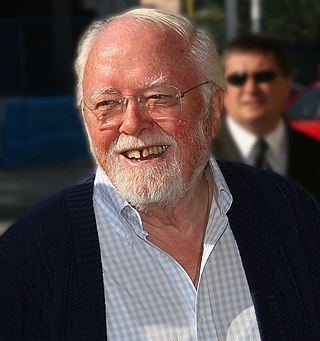
Richard Samuel Attenborough, Baron Attenborough, was an English actor, film director and producer.
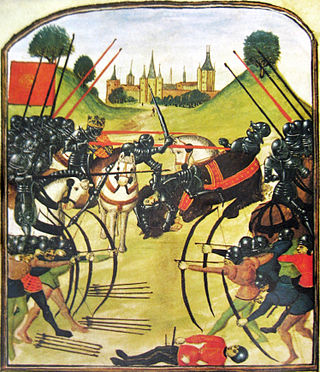
The Wars of the Roses (1455–1487), known at the time and for more than a century after as the Civil Wars, were a series of civil wars fought over control of the English throne in the mid- to late fifteenth century. These wars were fought between supporters of two rival cadet branches of the royal House of Plantagenet: Lancaster and York. The wars extinguished the last male line of the House of Lancaster in 1471, leading to the Tudor family inheriting the Lancastrian claim to the throne. Following the war and the extinction of the last male line of the House of York in 1483, a politically arranged marriage united the Houses of Tudor and York, creating a new royal dynasty which inherited the Yorkist claim as well, thereby resolving the conflict.